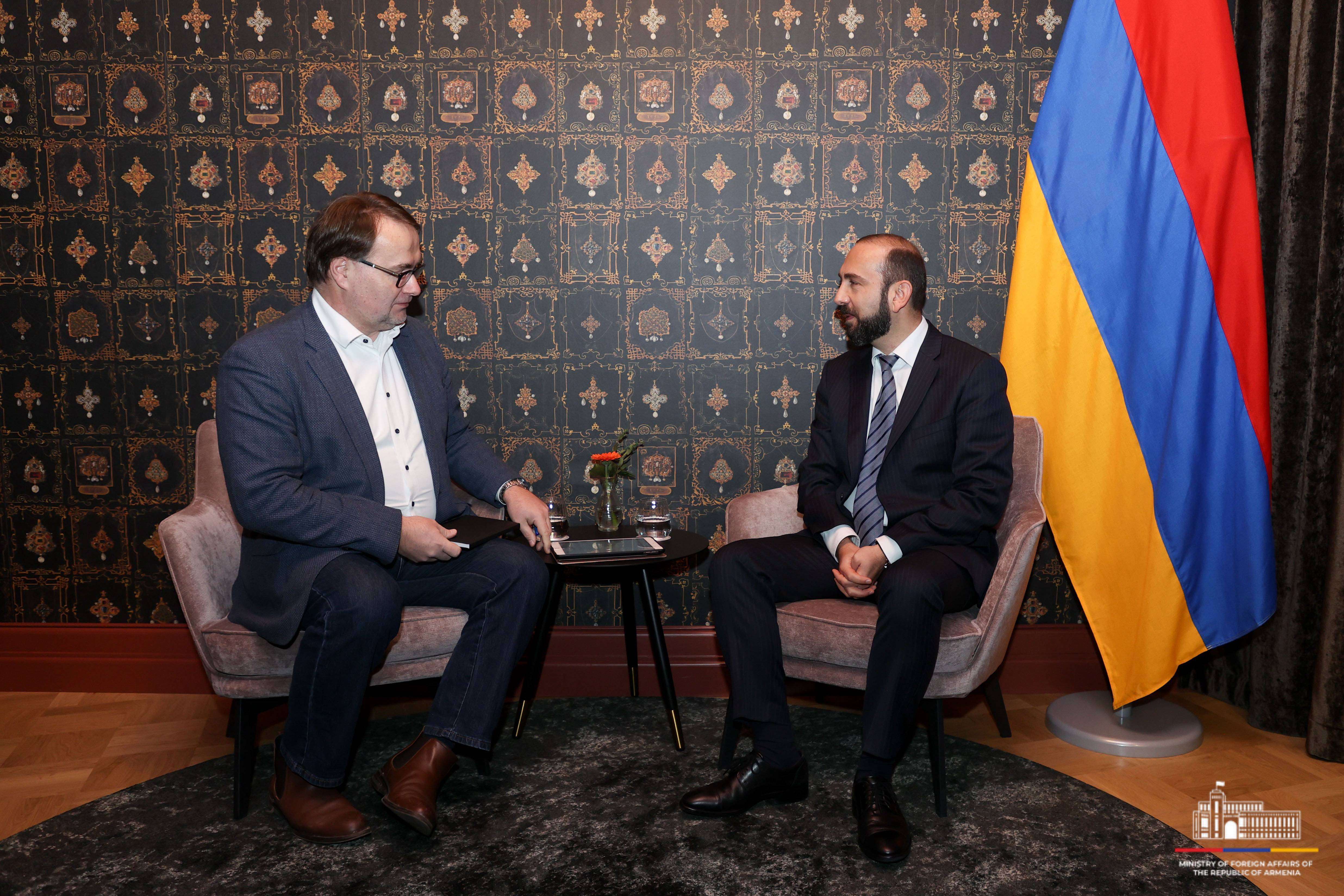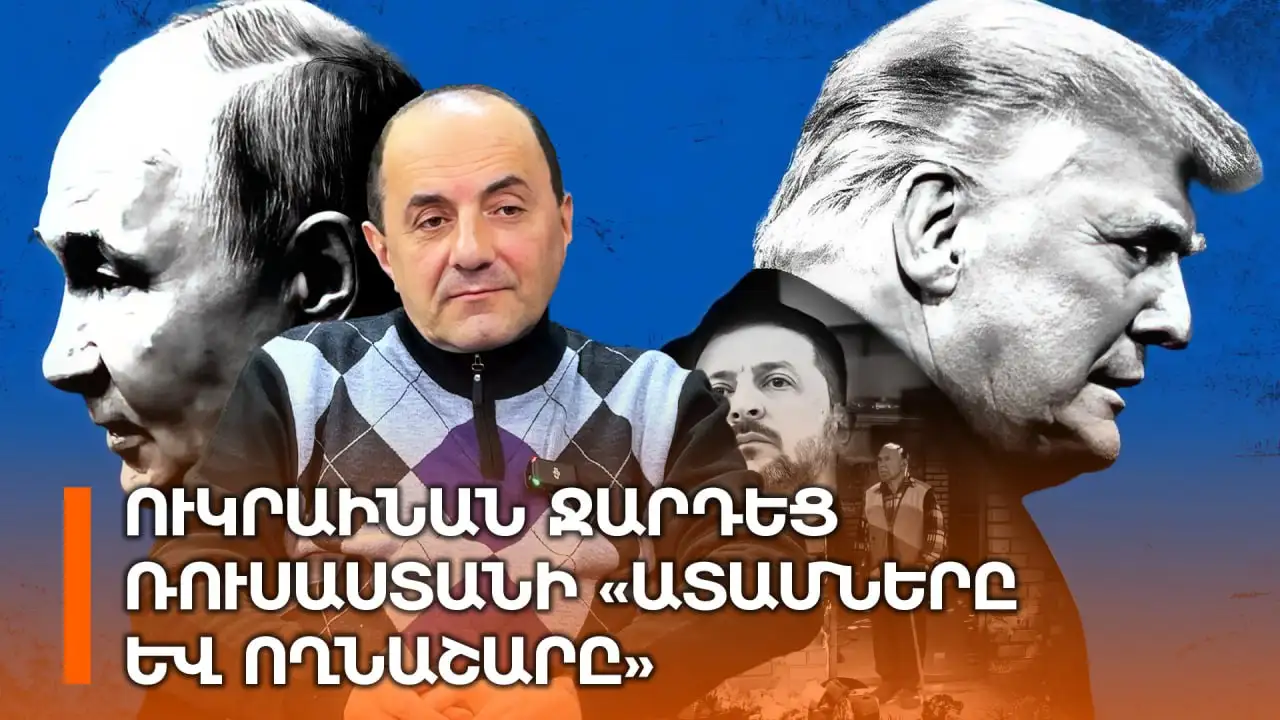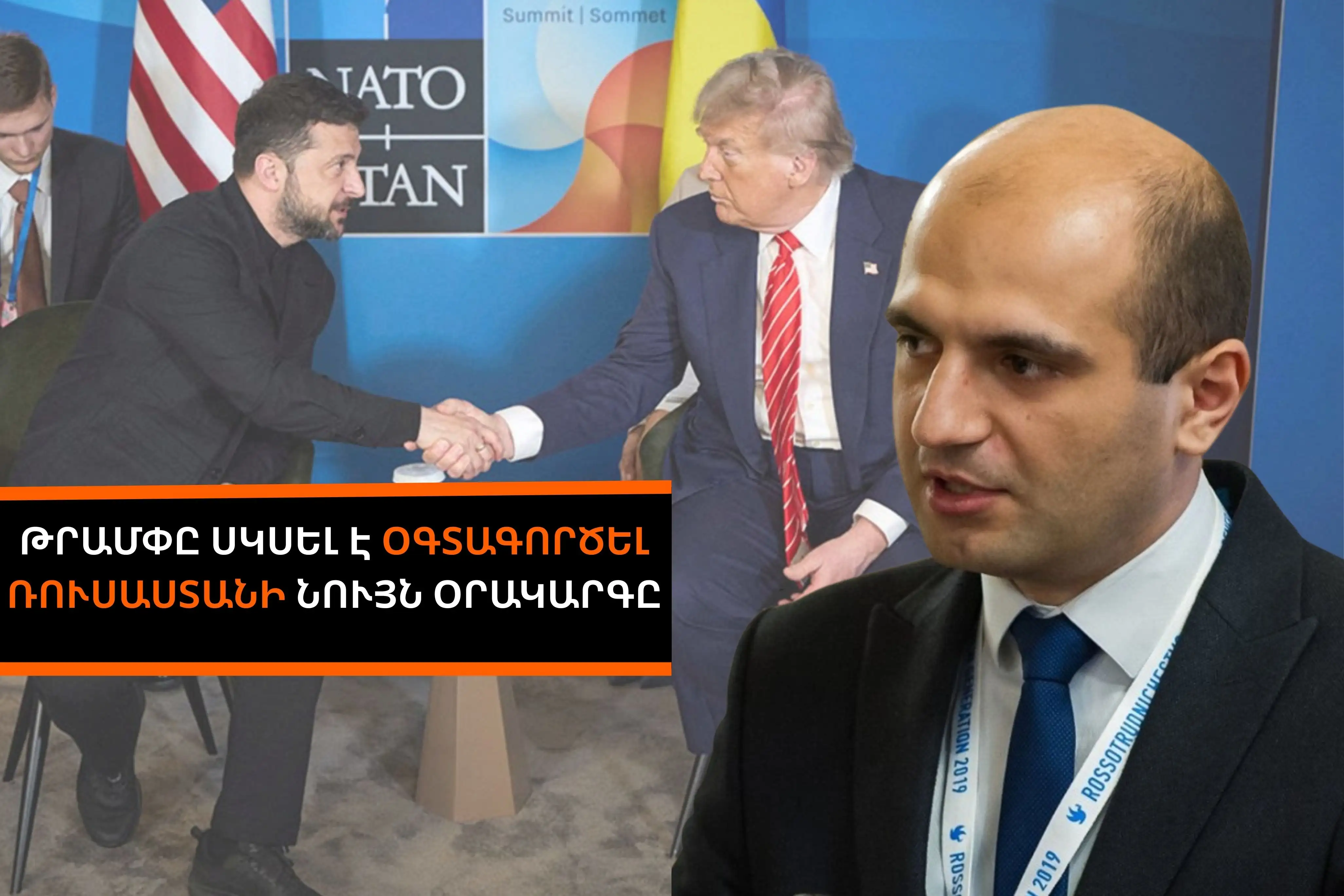Within the framework of his visit to Finland, RA Minister of Foreign Affairs Ararat Mirzoyan gave an interview to the local "Lännen Media" news agency, as a result of which the article including the minister's interview with the caption "We want to get closer to Finland and other democratic countries" was published in four Finnish dailies.
At the beginning of the article, the journalist notes that Europe attracts many people today. The community of democratic countries shows an unprecedented interest in Armenia. The quotes from the minister in the interview are presented below.
At the beginning of the interview, Minister Ararat Mirzoyan emphasized that Armenia shares the values of democracy with countries such as Finland. He noted that his country pursues an "ambitious cooperation agenda" with Finland and the EU. "You know our policy, which aims to bring Armenia closer and closer to the European Union. In his speech at the European Parliament, the RA Prime Minister stated that Armenia is ready to get closer to the European Union as much as the EU considers possible.
According to him, Armenia is implementing a policy to significantly deepen relations with the EU. Negotiations are underway on the document called "New Partnership Agenda," which Minister Mirzoyan described as a comprehensive document covering various areas of cooperation.
"In April, a high-level trilateral meeting was held with the participation of Armenia, the EU, and the United States. The primary purpose of the meeting was to strengthen Armenia's confrontation, especially the economic one, considering that Armenia faces many threats from different directions, including hybrid threats. I would say.
As you know, Armenia is a people's country. We have had a democratic revolution. We have initiated extensive democratic reforms to eradicate corruption and strengthen democratic institutions. We already had two parliamentary elections recognized as fully democratic, free, and transparent.
In building a democratic society, we seek opportunities to strengthen ties with other democratic institutions. Naturally, we turn our eyes toward the European Union, which has many developed democracies in its composition."
Minister Mirzoyan stated with confidence that the democratic changes taking place in Armenia are irreversible. "It doesn't matter what government will come to power through free democratic elections; democratic values are the basis of our society."
Next, the journalist asks the following question. To what extent is a military alliance with Russia compatible with European goals? Can Armenia be pressured to participate in Russia's war against Ukraine?
Minister Mirzoyan's answer: "Honestly, we were never offered, pressured, or expected to participate in the war in Ukraine in any way. There was no such experience."
Minister Mirzoyan answered the question regarding the involvement of RA within CSTO. "Formally, we are still part of the CSTO, but we have announced that we have frozen our participation in the organization's activities. For decades, you have thought that militarily, we should be in this military alliance because we had common threats and some concerns related to the possible aggression against the territorial integrity and independence of the Republic of Armenia. We believed that this organization would help us protect our sovereignty and territorial integrity.
Unfortunately, we have seen several attacks in recent years, and our internationally recognized borders have been violated. When this happened, we never received any real support. Allies with such commitments should help each other; that is what a military alliance is about.
This indifferent attitude led to a huge disappointment. It changed the public opinion. We are in a significant process. I can't predict where this process will lead us, but I can say that we are deepening our relations with European partners in various fields. We discuss the economy, economic resistance, political dialogue, and mutual understanding. EU involvement is in the security environment of Armenia's security dialogue format. The EU mission is located in Armenia and monitors the border between Armenia and Azerbaijan. These developments were unimaginable a few years ago."
Regarding the normalization process of relations with Azerbaijan, Minister Mirzoyan noted the progress in the border demarcation process as positive news. "Generally, we have a limit and know where it is. It is based on the 1991 Alma-Ata Declaration that was signed
By the former Soviet republics and turning administrative borders into state borders. Of course, the commissions of the two countries should work together toward further demarcation and clear distinction."
Minister Mirzoyan, characterizing demarcation as a guarantee of future stability, noted. "As far as any safeguards are possible, having a demarcated border is a powerful mechanism."
In the context of the opening of communications, Minister Mirzoyan noted that Armenia and Azerbaijan can come up with solutions that will be acceptable to both sides, such as resuming rail transit and gradually expanding it."
Regarding the conclusion of the peace agreement, the third component of the settlement of relations between Armenia and Azerbaijan, Minister Mirzoyan noted. "Now, there is agreement on 15 of the 17 articles. We could have finalized and signed the agreement even before the COP29 climate summit in Baku. Unfortunately, it did not happen, but now we are ready to do it quickly. It can be said that this is a moment of hope. I would say that we are very close. But despite the tragic past of our two states and societies, there is hatred—a chance to turn the page. The past has been difficult. It is difficult to understand, forget, and forgive, but enough blood has been spilled in our region, and now we can look to the future."
Regarding the internal political crisis in Armenia after the war in Nagorno-Karabakh in 2020, Minister Mirzoyan said, "The country's prime minister, government and political team decided to hold early parliamentary elections. We asked the people two things: do they support deeper democratic reforms and the peace agenda?" that is, to the government's policy. We got the majority of the votes again. We will ask that question again in the 2026 election, even though the polls also show the government's policy support.
We are focused on strengthening our country's security, sovereignty, and territorial integrity. On the other hand, we are focused on our country's prosperity, continuous modernization, and democratization. And this naturally brings us closer to Europe and your value choices.
At the same time, with all due respect to procedures and rules, it may be time to act differently from "business as usual" mode. This can refer to both geopolitical decisions and decisions of internal importance. The world is changing. Perhaps it is time to make bold political decisions."
At the end of the interview, Minister Mirzoyan answers the question about the nature of the RA Foreign Minister's work with a smile.
"Thank you for the interesting question. Becoming the first deputy prime minister and then the parliament president was very tempting. But when I received an offer from the prime minister, it made me think of taking on this role given the unique circumstances."
At the end of the article, the journalist adds that the number of challenges can be seen just by looking at the location of the country with about 3 million inhabitants on the map, in the middle of Turkey, Georgia, Azerbaijan, and Iran, next to Russia in the South Caucasus.




















